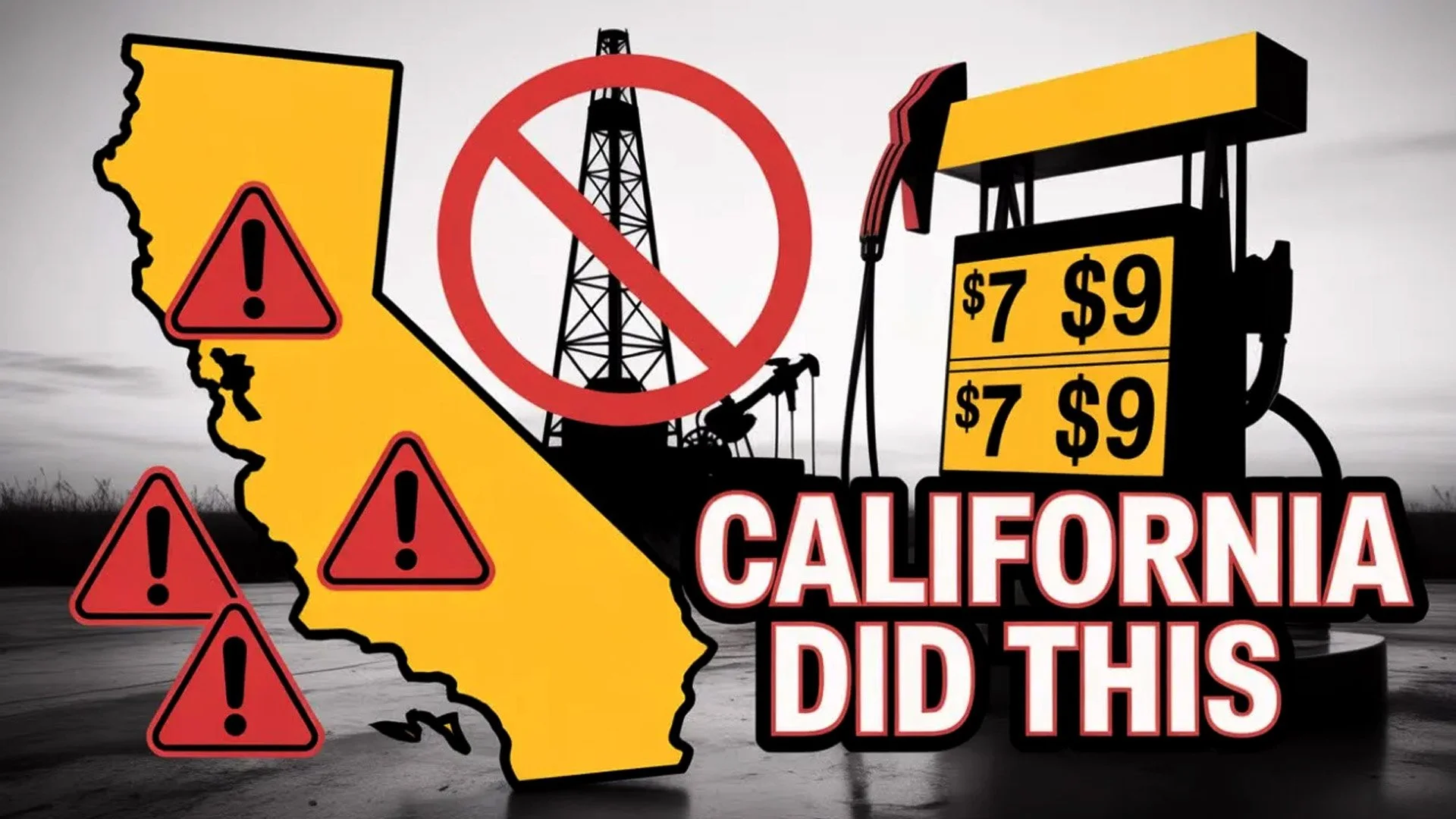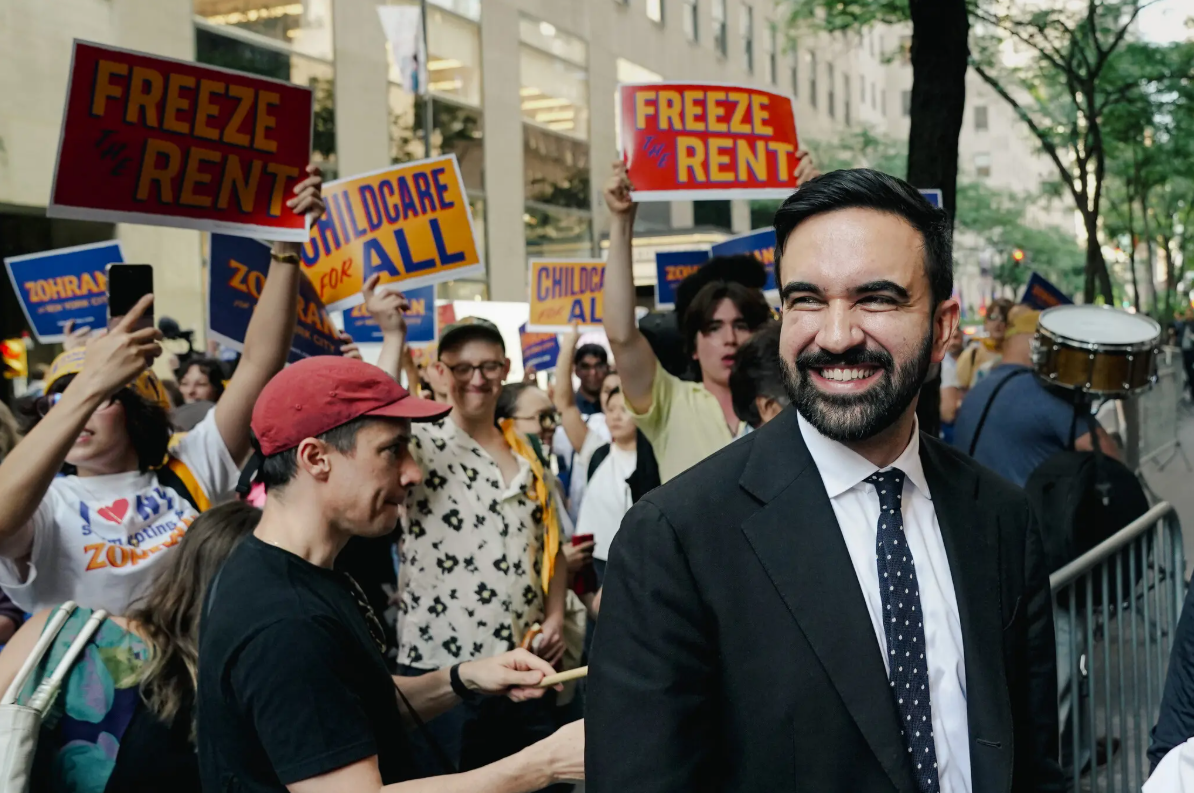
California’s Gas Crisis Explained: How State Policies Are Driving Prices Toward $8 a Gallon
California’s looming gas crisis is not the result of market failure or corporate greed. It is the direct consequence of political decisions made in Sacramento. For years, state leaders have restricted oil production, punished refiners, and imposed layers of regulations that make energy production economically irrational. The outcome was never in doubt. When supply is constrained and demand remains constant, prices rise. This is not ideology. It is basic economics.
California once ranked among the world’s leading oil producers. Today, it produces less than a quarter of its own energy needs. At the same time, the state has driven major refineries out of operation. When those refineries close, California will be forced to import gasoline from out of state and overseas. That dependence will raise costs, increase volatility, and expose consumers to supply disruptions. Eight-dollar gasoline is not a mystery. It is a policy choice.

The Real Intelligence Scandal: How the CIA Sold America a Lie About Trump and Russia
In 2017, the U.S. intelligence community claimed with “high confidence” that Vladimir Putin ordered an influence campaign to help Donald Trump win the presidency. That conclusion fueled years of investigations, media hysteria, and deep public distrust. But newly declassified documents reveal something shocking: the entire judgment was based on one vague sentence from a single human source, so unclear that CIA officers said, “Five people read it five different ways.” Even worse, critical intelligence that contradicted the narrative was buried. One officer said, “We were not given the chance to offer that input.” Another admitted, “There was pressure to make sure the Trump conclusion stuck.” This wasn’t intelligence. It was manipulation. And now, the truth is finally on paper.

The Socialist Threat: Why Zohran Mamdani’s Agenda Will Destroy New York City
Zohran Mamdani isn’t offering bold solutions, he’s peddling failed ideologies. His vision of rent freezes, government-run grocery stores, and defunded police departments isn’t just economically illiterate, it’s historically disastrous. From Soviet supermarkets to Venezuela’s ration lines, we’ve seen what happens when government replaces markets and ideology replaces reality. If New York hands the reins to a self-proclaimed socialist, it won’t just flirt with collapse, it’ll sprint toward it.

The Looming Immigration Crisis: Europe’s Warning for America
Mass immigration is often championed by progressives as a sign of tolerance and compassion. Yet Europe's current reality, sharply rising crime, eroding cultural identity, and destabilized communities, tells a different story. America must urgently reexamine its immigration policies through the lens of conservative values: individual responsibility, adherence to the rule of law, and patriotic assimilation. If we neglect these fundamental principles, we risk repeating Europe's disastrous mistakes, undermining the very fabric that makes America exceptional.

WHY DID SILICON VALLEY BANK FAIL?
Silicon Valley Bank's failure was caused by a run on the bank. The bank's management sold $21 billion of bonds at a $1.8 billion loss, which led to the bank looking like an underperformer relative to its peers. Moody’s was considering downgrading its rating. The bank's management decided to raise new equity from General Atlantic and sell a convertible bond to the public. This move surprised the market and led to the bank's smart client base directing their portfolio clients to withdraw their deposits en masse, leading to a loss of confidence in the bank. The bank invested its deposits in low-interest rate bonds, which it held on its books on a long-term "hold-to-maturity" basis. The fallout from the bank's collapse is only beginning to be felt, and it may make it hard for venture capital firms to fund current and new investments.

THE CASE AGAINST MINIMUM WAGE
Minimum wage laws set a price floor on the wages that employers can pay their employees. While the intention behind these laws is to help low-wage workers by requiring employers to pay them a higher wage, there are several arguments against the use of minimum wage as a means to address income inequality and poverty.

MAO ZEDONG & THE GREAT LEAP FORWARD
The Great Leap Forward was a campaign launched by the Chinese Communist Party in 1958 with the aim of rapidly transforming China's economy from an agrarian one to a socialist society through rapid industrialization and collectivization. It was led by the Chinese leader Mao Zedong and was based on the idea that China could industrialize and surpass the economic development of Western countries in a short period of time through the mass mobilization of its population.

BRIEF SUMMARY OF SOCIALISM
Socialism is a political and economic ideology that advocates for the creation of a classless, stateless society in which the means of production are owned and controlled by the community as a whole. The idea of socialism can be traced back to ancient philosophical traditions, but it was not until the 19th and early 20th centuries that socialist movements began to emerge in earnest.